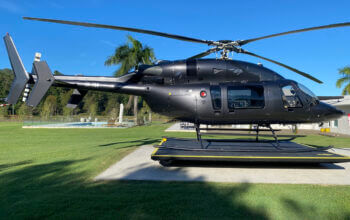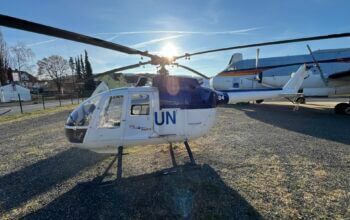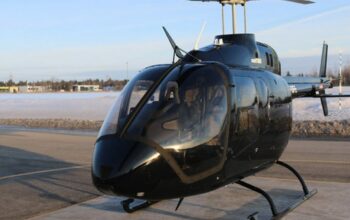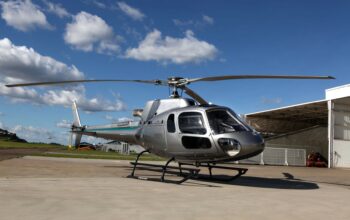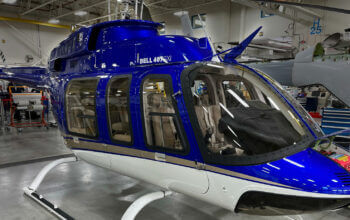Estimated reading time 5 minutes, 9 seconds.
Even as Boeing struggles with the fallout from the catastrophic crashes of 737 Max jets in Indonesia a year ago and Ethiopia in March 2019, president and chief executive officer Dennis Muilenburg remains optimistic about upgraded control software and simulator testing “in the coming days” in preparation for a recertification flight with Federal Aviation Administration (FAA) inspectors.
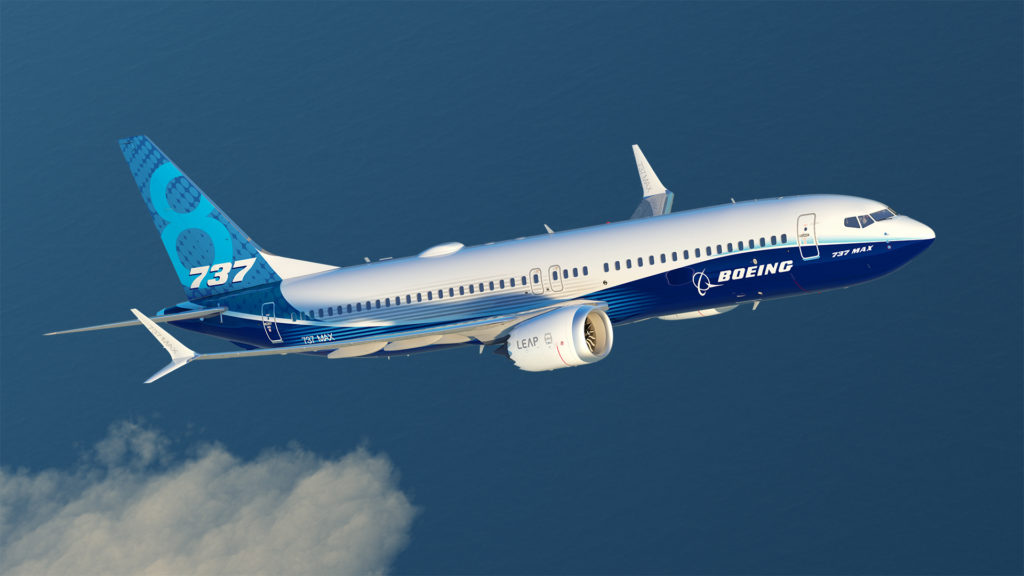
During an Oct. 23 conference call with financial analysts and news media, Muilenburg said Boeing is working “daily” not only with the FAA but also regulators worldwide on certifying an upgrade to the company’s new Maneuvering Characteristics Augmentation System (MCAS) –which is seen as the cause of the Lion Air Flight 610 crash off Indonesia and the Ethiopian Airlines Flight 302 crash.
MCAS can pitch an aircraft down when a sensor indicates an imminent stall. Satellite data on both the crashes, which killed a total of 346 passengers and crew, disclosed sharp fluctuations in vertical speed as the pilots had reported control problems and tried to return to their departure points. As a result, the fleet was grounded by regulators around the world in March.
While confident about the company’s ability to renew global confidence in the aircraft and enable the company to resume production, Muilenburg and his chief financial officer, Greg Smith, acknowledged the scope of the challenge as Boeing continues to bleed cash and plans to slow production of other major commercial platforms.
Newly-stripped of his title as Boeing chairman in a leadership shakeup which also saw the Oct. 22 replacement of Kevin McAllister, head of the commercial aircraft division, Muilenburg said that Lion Air and Ethiopian Airlines weigh heavily on him personally and on the company generally.
“Not a day goes by where my team and I don’t think about these accidents,” he said. “We will never forget the lives lost aboard those flights. . . . Nothing is more important to us than the safety of all those who fly on our airplanes.”
He said the completed MCAS upgrade provides three additional layers of protection to prevent a recurrence of the control conflicts “from ever happening again.” The last few months had seen more than 800 test and production flights totalling more than 1,500 hours incorporating feedback from regulators and operators.
That included feedback from 545 participants from more than 140 customers and regulators who had a chance to “experience the software updates” in Boeing’s own simulators. There also have been weekly technical calls with operators worldwide. “We are making steady progress on the second software update, announced in June, for additional flight control computer redundancy to eliminate the possibility of even extremely unlikely risks that are unrelated to the accidents,” said Muilenburg.
Last week saw a successful dry run of the recertification flight test and was “making daily progress” by dedicating all the needed resources “to ensure that the improvements to the 737 Max are comprehensive and thoroughly tested.” That involved more than 100,000 engineering and test hours.
“Looking forward, we target regulatory approval . . . to begin this quarter.” But he conceded that is up to the FAA and foreign regulators to ultimately determine the timing and conditions for the return to 737 Max fleets under their national jurisdictions. “All of their questions are being answered, [and] the process is dynamic and involves constant dialogue . . . in the days and weeks ahead.”
The impact of the 737 Max crashes on Boeing’s financial bottom line have been huge — notably a more than 50 per cent drop in profits to $US1.17 billion in the third quarter from the year-earlier $2.37 billion. Sales fell 21 per cent to $20 billion and Boeing delivered 63 commercial platforms in the latest quarter compared with 190 a year earlier.
Slowed Max production has cost Boeing US$900 million in the third quarter, bringing the total cost to US$9.2 billion, but Boeing plans to keep monthly output at 42 aircraft, increasing to 57 over the next year.
Although the impact on the company’s overall financial performance has been softened by steady sales of its larger commercial platforms and its aerospace and defence divisions, Boeing has delayed the introduction of its larger 777X platform jetliner until 2021 after issues with new General Electric Co. engines ruled out a first flight this year.
That aside, Muilenburg called the 737 Max situation “a defining moment for Boeing” and reiterated that “action to further sharpen our company’s focus on product and services safety” will enable it “to deliver on customer commitments and capture new opportunities.”
